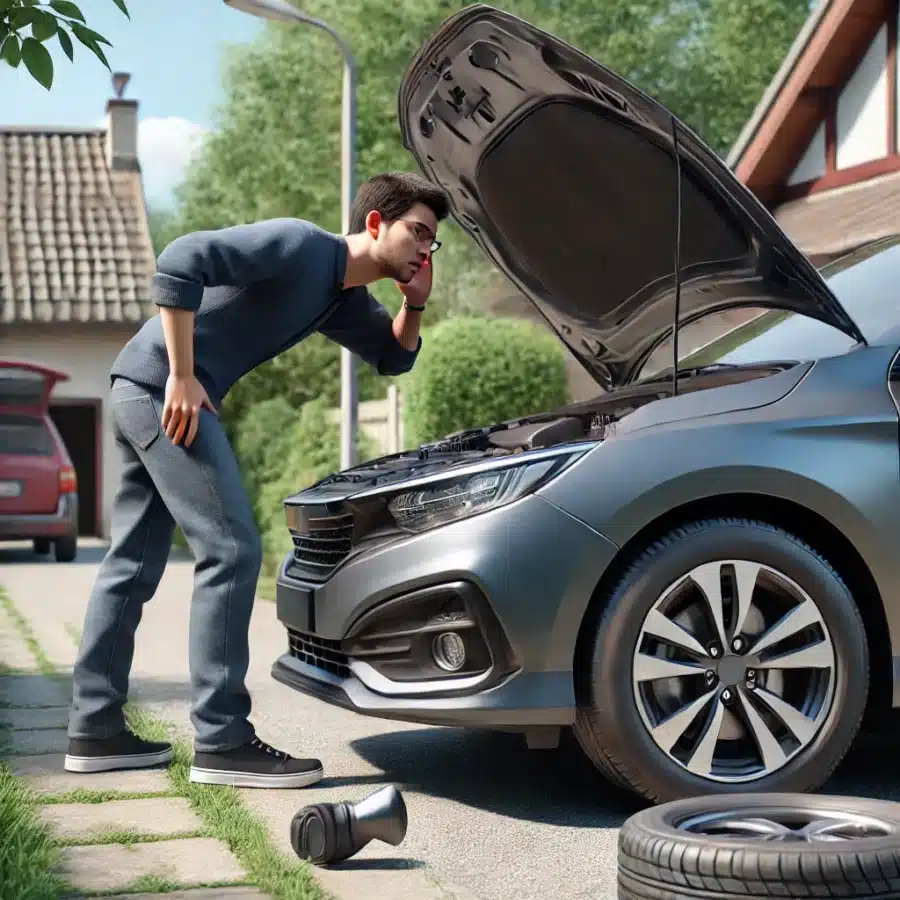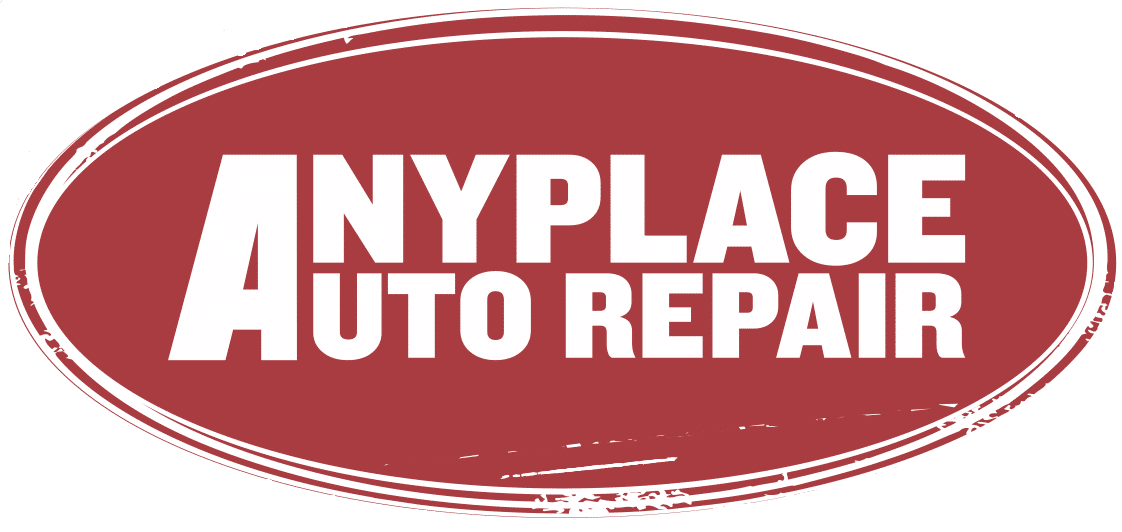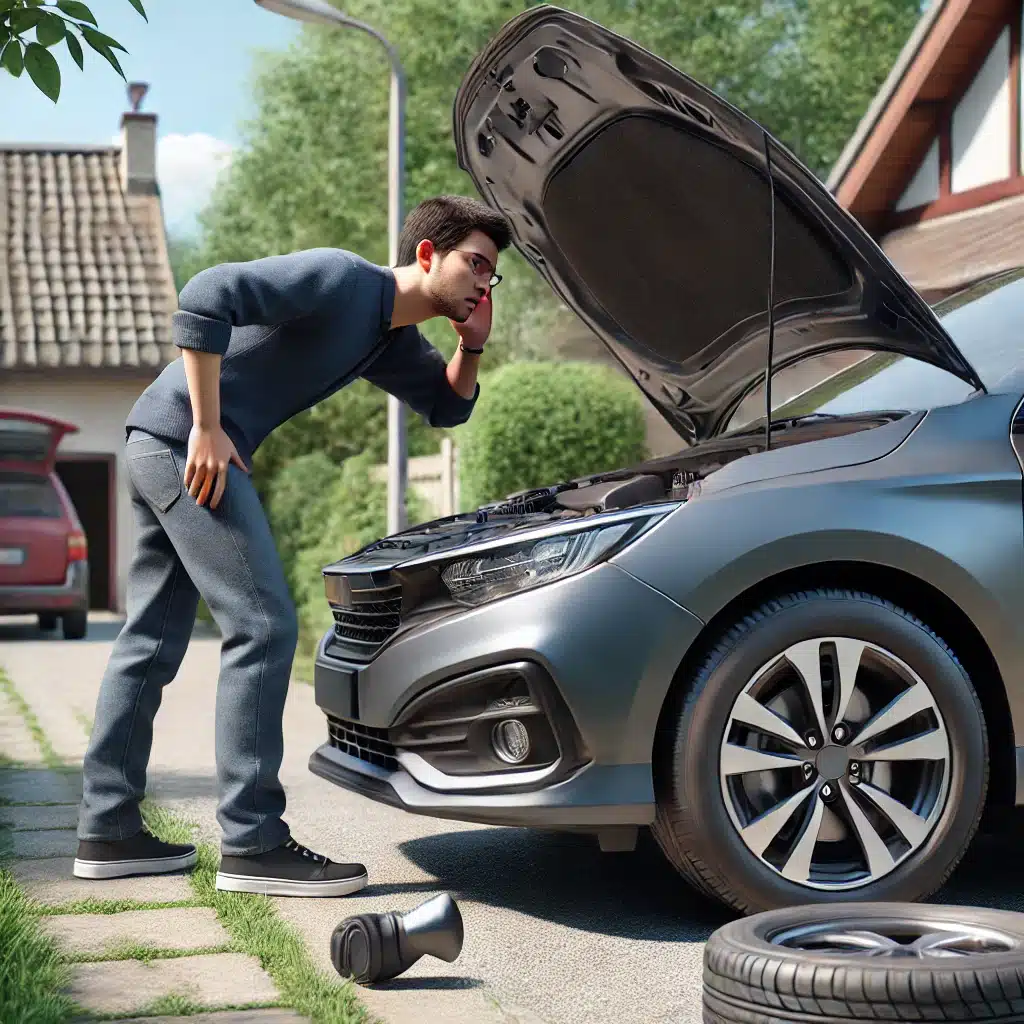When your car starts making strange noises, it’s usually a sign that something’s not quite right. Ignoring these sounds can lead to bigger problems and more expensive repairs down the road. Understanding what these noises mean can save you both time and money. Here’s a guide to common car noises, their possible causes, and when to seek professional repair.

1. Squealing or Screeching When Braking
Possible Causes:
- Worn Brake Pads: The most common cause of squealing brakes is worn brake pads. When the pads wear down, the metal underneath can start to make contact with the rotors, causing that high-pitched squeal.
- Glazed Pads or Rotors: If the brake pads or rotors overheat, they can become glazed, leading to a squealing sound.
When to Seek Help:
Squealing brakes should never be ignored. If the noise persists, it’s time to get your brakes inspected and likely replaced. Neglecting this issue can lead to more expensive repairs, like damaged rotors.
2. Grinding Noise While Shifting
Possible Causes:
- Worn Clutch (Manual Transmission): In a manual transmission, a grinding noise when shifting could indicate a worn clutch or synchronizers.
- Transmission Problems (Automatic): For automatic transmissions, grinding noises could signal a more serious issue within the transmission itself, such as worn gears or low transmission fluid.
When to Seek Help:
Any grinding noise while shifting is a red flag. To avoid more severe damage, have your transmission checked by a professional as soon as possible.
3. Rattling Under the Hood
Possible Causes:
- Loose Parts: A common cause of rattling is loose or worn engine components such as the timing chain, belts, or pulleys.
- Exhaust System Issues: Sometimes, a loose exhaust system component, like a heat shield, can create a rattling noise.
When to Seek Help:
If the rattling noise is persistent or you notice a decrease in engine performance, it’s crucial to have your vehicle inspected by a mechanic. Ignoring these noises can lead to costly repairs and potential engine damage.
4. Hissing Sound from the Engine
Possible Causes:
- Leaking Vacuum Lines: A hissing noise often points to a vacuum leak, which can affect engine performance and fuel efficiency.
- Coolant Leak: If the hissing is accompanied by the smell of antifreeze, it could indicate a coolant leak.
When to Seek Help:
Hissing sounds should be checked out immediately, especially if accompanied by the smell of coolant. A vacuum or coolant leak can lead to overheating or engine failure.
5. Knocking or Pinging from the Engine
Possible Causes:
- Engine Knock: Knocking or pinging noises can indicate issues with your engine’s combustion process, such as improper air/fuel mixture or using the wrong octane fuel.
- Rod Knock: A more severe cause could be a rod knock, which indicates a problem with the engine’s internal components.
When to Seek Help:
Engine knocking is a serious issue that requires immediate attention. Continuing to drive with this noise could result in extensive engine damage.
6. Whining Noise When Turning the Steering Wheel
Possible Causes:
- Power Steering Pump Issues: A whining noise when turning could indicate a problem with your power steering system, such as low fluid levels or a failing power steering pump.
- Worn Steering Components: Other potential causes include worn steering rack components or tie rods.
When to Seek Help:
Whining when turning is often a sign of a power steering issue that should be addressed promptly to avoid losing steering control.
Conclusion: Don’t Ignore Your Car’s Noises
If your car is making any unusual noises, it’s essential to get it checked out by a professional. At Anyplace Auto Repair, we offer mobile auto repair services, so we can diagnose and fix the problem at your convenience, whether you’re at home, work, or anywhere else.
Schedule Your Repair Today!
Visit www.anyplaceautdev.wpenginepowered.com/contact to book an appointment or call us at 480-613-2078. Don’t wait until it’s too late—let us keep your car running smoothly!


Leave a Reply